Prizes and the push for equality: Why some time trial prize structures must change
Equality and Advisory Support Service (EASS) guidance suggests some prize structures which have been used in time trials are unlawful under the Equality Act 2010. We look at the data used to support the case, and the individuals pushing for change
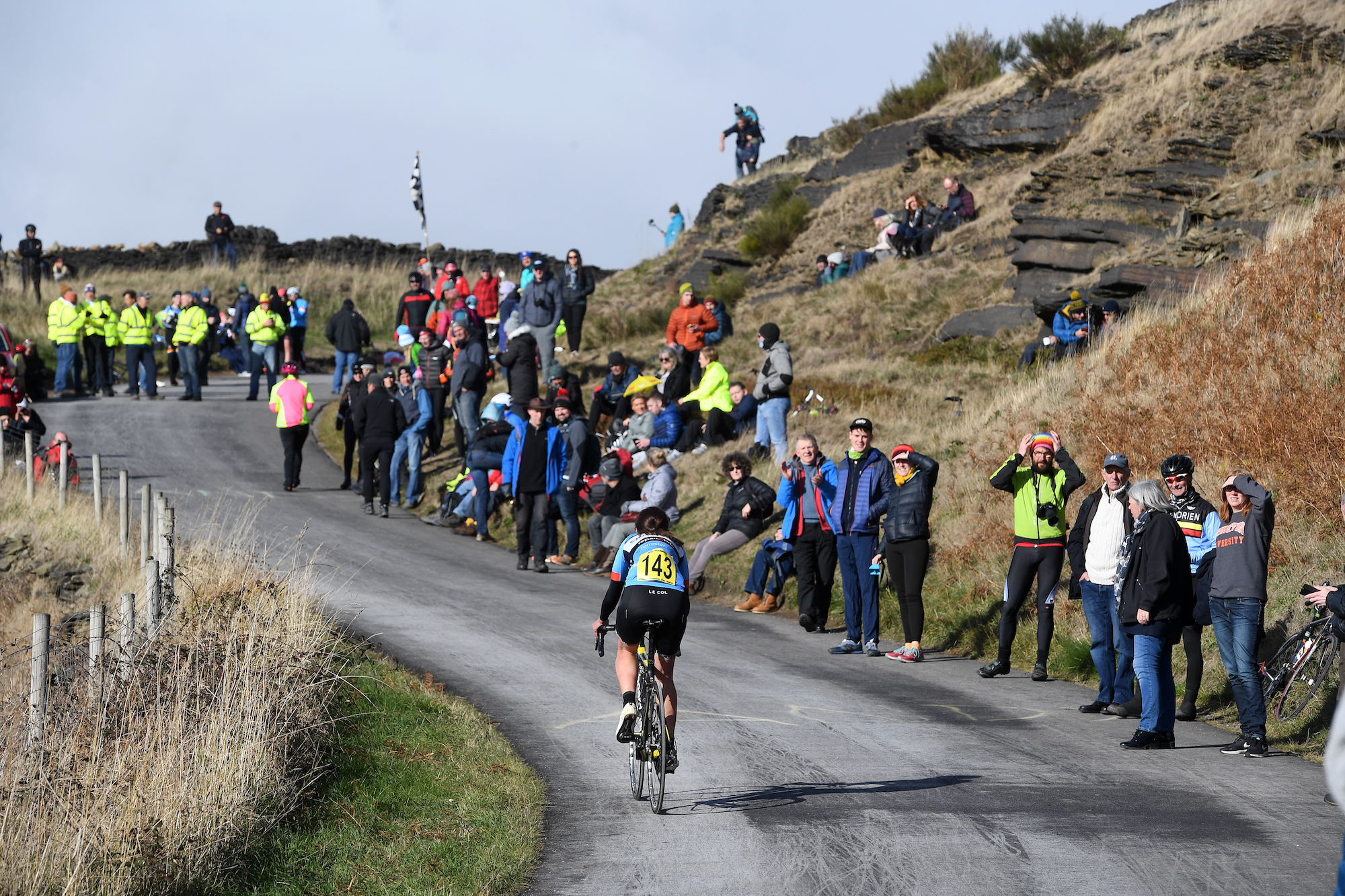
Disruption and cancellation characterised the 2020 time trial season, but in amongst the difficulties, changes, and challenges the hill climb season proceeded for the most part unscathed – physical podiums aside.
Once again, the issue of prize inequality came to the fore, with women sharing their stories on social media and highlighting the issue. With momentum gathering, an open letter was written to Cycling Time Trials (CTT), authored by Andy Nichols and Team Lifting Gear Products Cycles in Motion. The letter requested changes to rules around prizes, and resonated widely. It gathered a total of 4,305 signatures, including hundreds of event organisers, thousands of CTT competitors, and National and Olympic Champions.
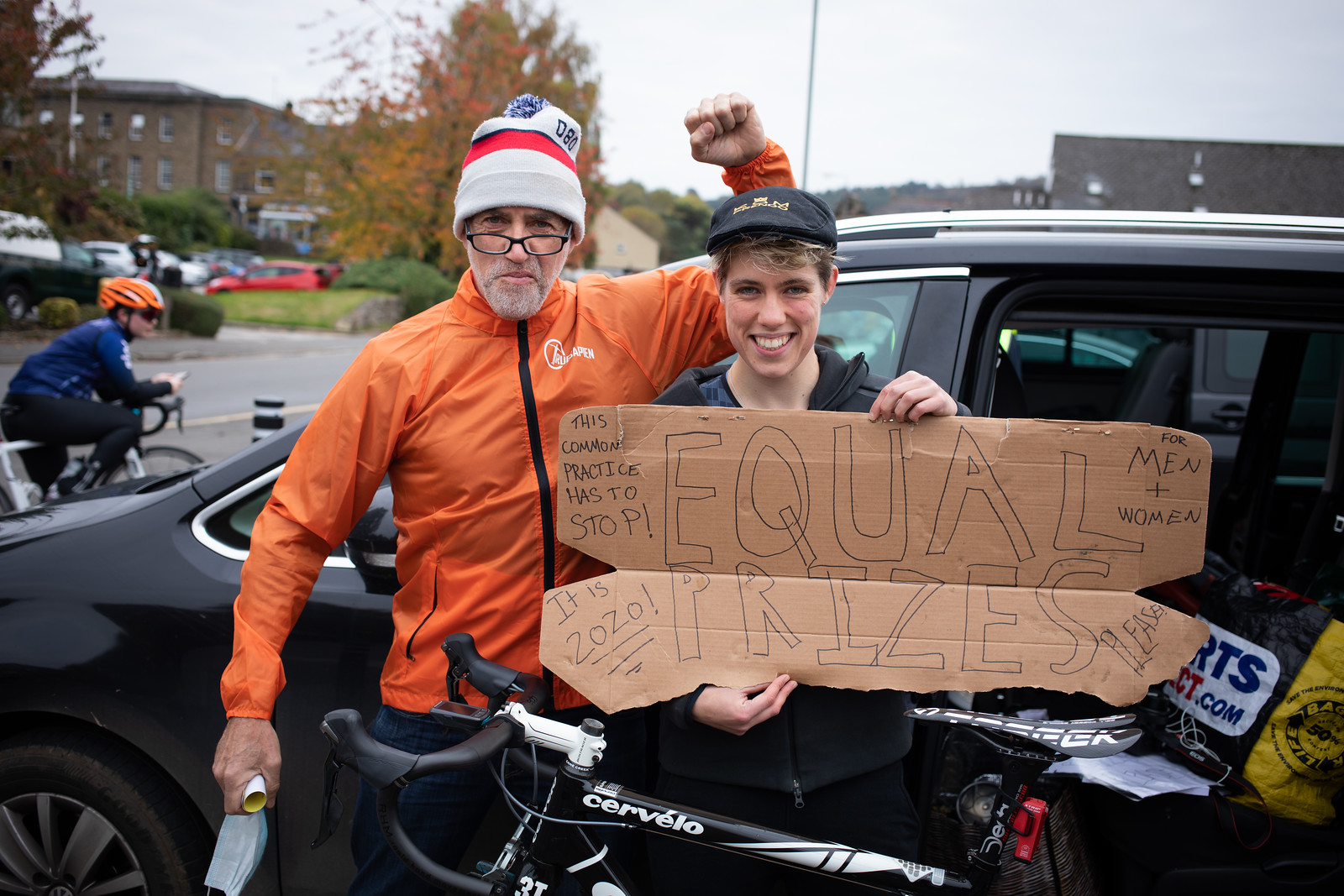
This is the story of what happened next, and where this might go in 2021. It involves strong-willed individuals brought together by a common passion for making cycling a more equal place. Combining racers, event organisers, and club and district committee members, this newly formed working group is continuing the push for change beyond the podiums of the National Hill Climb Championship.
>>> National Hill Climb Championships will be held on iconic Winnats Pass in 2021
Within this group Michelle Lee (Forest of Dean CC, PDQ Cycling) has pursued an evaluation of the legality of unequal prize structures. A stellar time triallist herself, and a fierce advocate for women in the world of cycling, Michelle reviewed the prize structures in time-trialling as a whole. Michelle is no stranger to podium finishes at time trials. Drawing on personal experience and discussions with others, she concentrated on those events that awarded prizes on an ‘overall’ basis, i.e. where prizes are awarded to the first, second, and third placed finishers, regardless of sex.
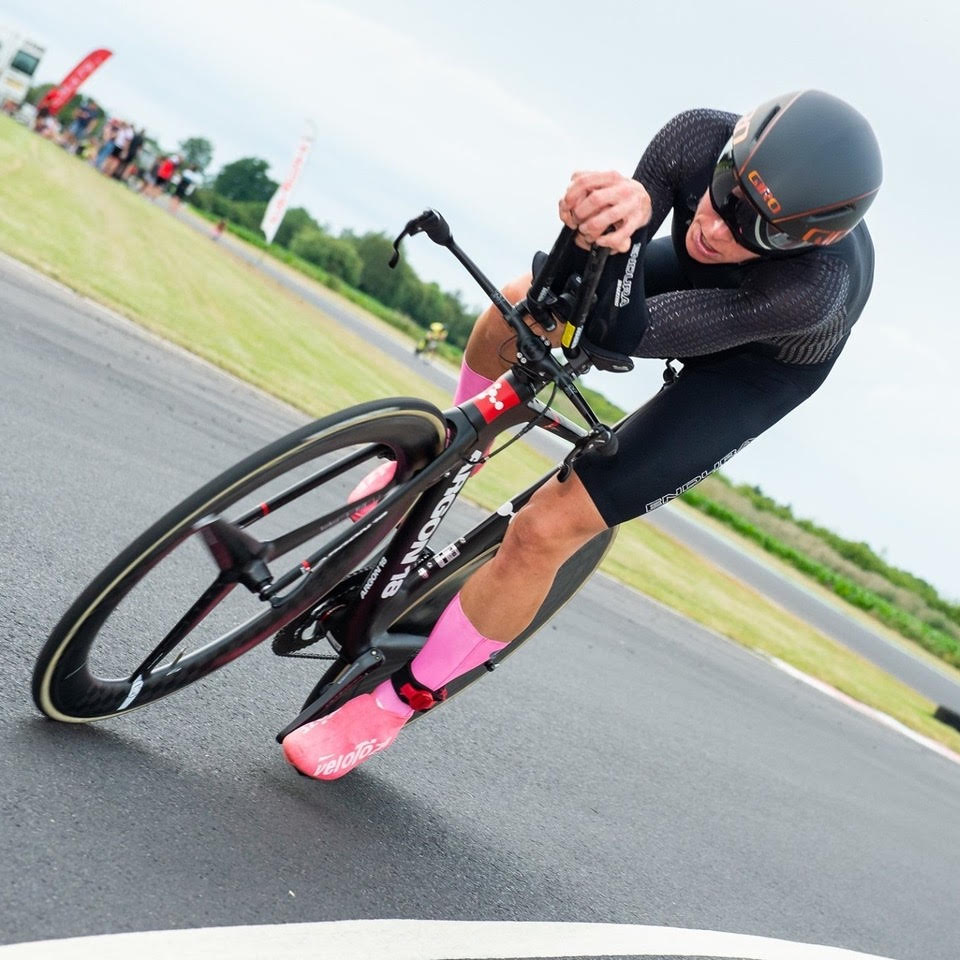
This ‘overall’ prize structure is one of the predominant prize structures in time-trialling. Analysis of published prize structures in 2019 events by Anthony Atkin (Didcot Phoenix CC and Chair of the group) shows that 46 per cent of events used this ‘overall’ prize classification (with or without additional categories of prizes), as opposed to the ‘male’ and ‘female’ categories adopted by other sports.
Michelle wanted to show that inherent physiological sex differences prevent women from being able to equally access prizes allocated on an ‘overall’ basis. With the help of Richard Gildea (Didcot Phoenix CC), data was drawn from over 2000 past CTT events over the five years between 2016 and 2020. Analysis of this data shows that in none of the events did a woman win outright, and in only 0.003 per cent of the events did a woman finish on the ‘overall’ podium. The most common finish position for the first female was 22nd.
Get The Leadout Newsletter
The latest race content, interviews, features, reviews and expert buying guides, direct to your inbox!
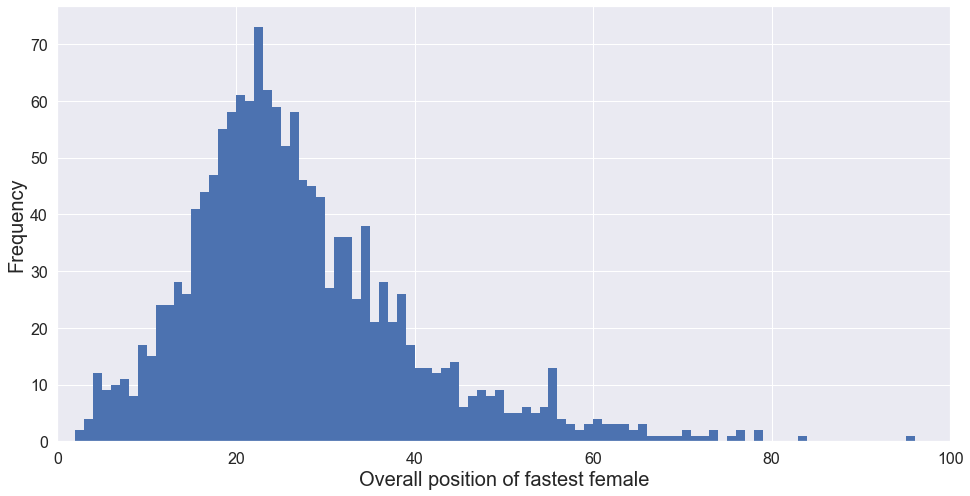
The reason for this was demonstrated using results from events on the popular R25/3h 25-mile time trial course in Wales where female finish times were on average almost 10 per cent slower than male times – 9.8 per cent slower based on the median. Richard points out that these results align with previously published findings from other sports including swimming and running.
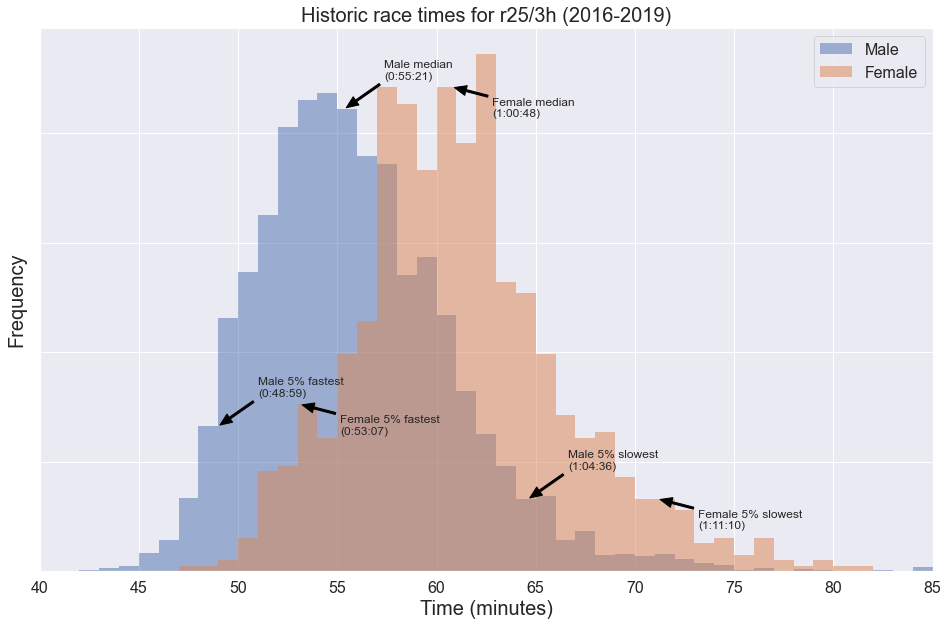
The findings supported the idea that women do not compete equally in events with an ‘overall’ prize. In turn, this puts to bed the ‘Beryl Burton’ argument that women can compete for ‘overall’ prizes if they’re fast enough. Michelle says the data demonstrate that Burton was an outstanding, once in a century outlier and that for the vast majority, female physiology prevents women from competing on an equal footing.
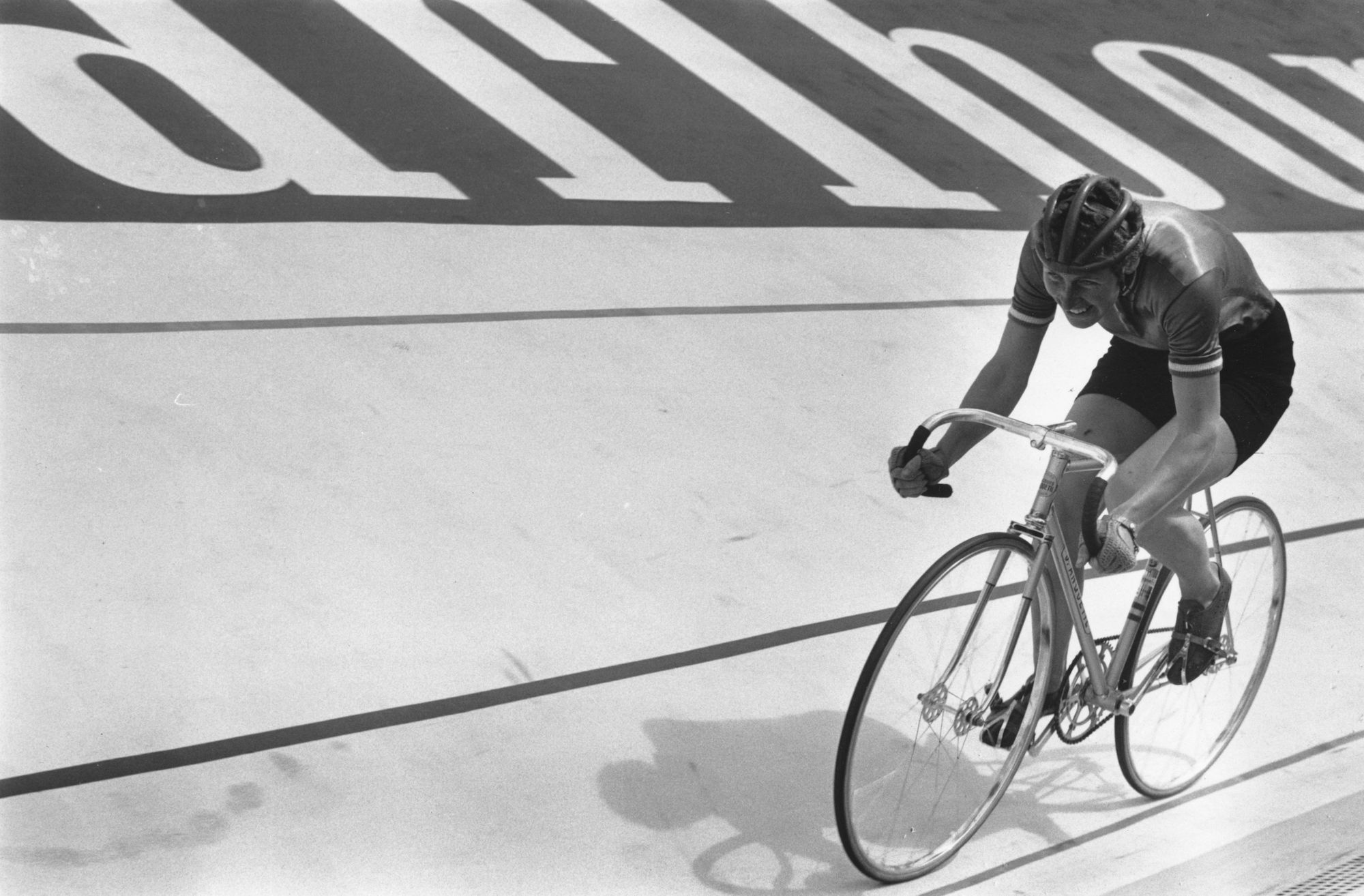
Following the analysis, Michelle and the group sought advice from the Equality Advisory and Support Service (EASS) on the legality of ‘overall’ prize structures. In what seems to be a landmark response, the EASS advised that ‘overall’ prizes could be considered a form of indirect discrimination, as a person’s sex prevents equal access to such prizes – citing the Equality Act of 2010. As such, they have managed to show, perhaps for the first time, and based on data from events within the sport, that prize money in time-trialling has been awarded in a way that is systematically unequal. It should be noted that this picture is not uniform across the discipline. There are many clubs and organisers who get this right already, with fully equal prize structures and recognition of the achievements of female competitors.
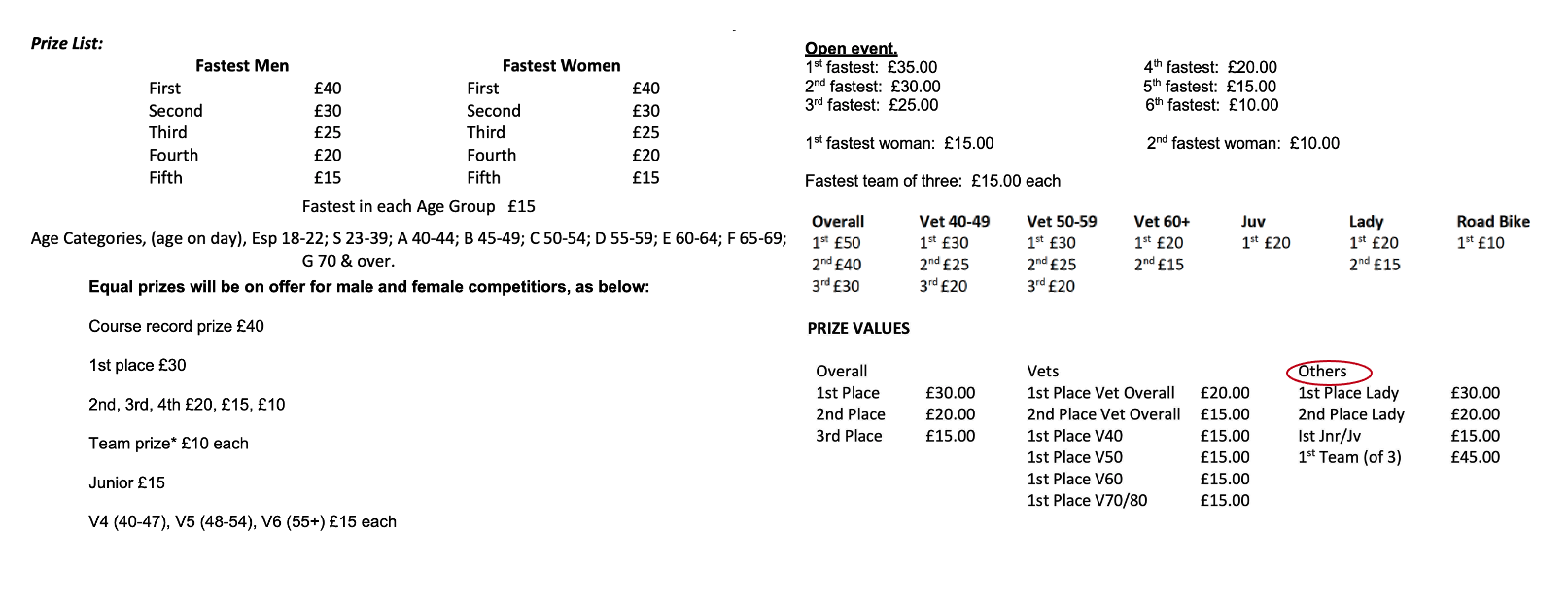
The working group has presented CTT with an open letter and list of signatories, alongside a list of requests in line with the EASS advice, and CTT have agreed to discuss the issue at their next board meeting. The group is hopeful for a positive and progressive response from CTT and hope that changes made will contribute to futureproofing a sport that relies so heavily on the contributions of volunteers and clubs. Women’s participation continues to grow, with the largest ever women’s field at the National Hill Climb, and with Strava reporting a surge in cycling activities uploaded by women in 2020. Their voice grows alongside their participation and it’s time to celebrate them and reward them equally.
With thanks to Anthony, Michelle and Richard for their contributions to this piece.

Thank you for reading 20 articles this month* Join now for unlimited access
Enjoy your first month for just £1 / $1 / €1
*Read 5 free articles per month without a subscription

Join now for unlimited access
Try first month for just £1 / $1 / €1
-
 Tadej Pogačar flies to dominant victory at La Flèche Wallonne
Tadej Pogačar flies to dominant victory at La Flèche WallonneSlovenian takes second win at Belgian classic ahead of Kévin Vauquelin and Tom Pidcock
By Tom Thewlis
-
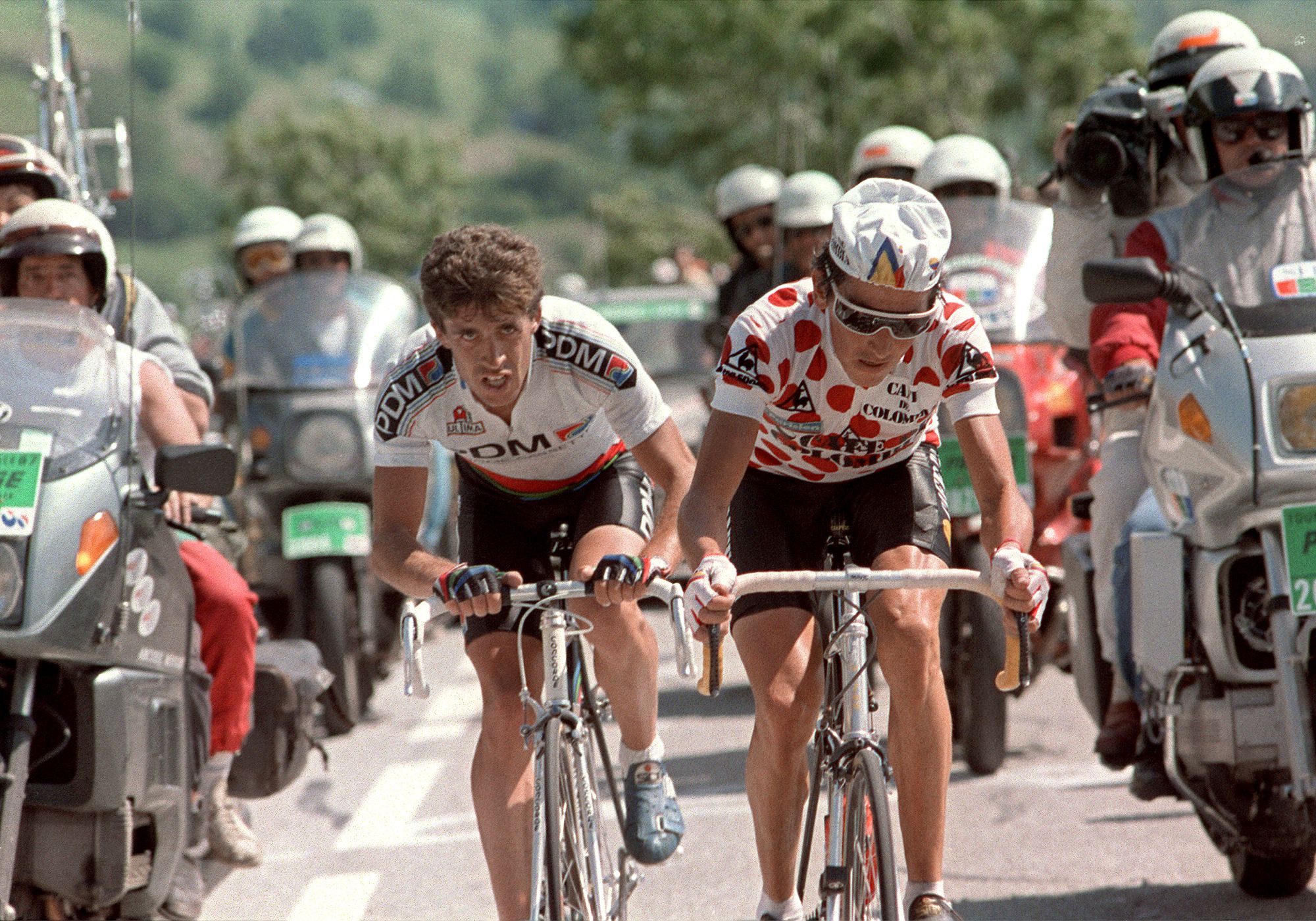 Colombian climbing star and former Vuelta a España winner Lucho Hererra could be investigated over murders of four people
Colombian climbing star and former Vuelta a España winner Lucho Hererra could be investigated over murders of four peopleA judge has called for an investigation into the former Vuelta winner who is alleged to have worked with paramilitary groups in Colombia
By Tom Thewlis